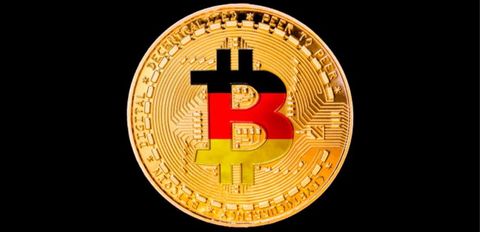At the outset, tokens came closest to everybody’s idea of virtual currency. Meant to be a decentralized currency, i.e. one that governments can’t control, they required no centralized issuer. Because they aren’t regulated by any legal acts, classifying tokens poses a serious challenge. Notwithstanding, the number of entrepreneurs seeking to register cryptocurrency companies in Germany has been on the increase lately.
Germany: Classification of Cryptocurrency Tokens
BaFin, Germany’s number one financial regulator, came up with its own token classification, under which tokens were deemed units of account & could be compared to currencies issued by foreign states.
Because BaFin considers cryptocurrency tokens financial tools, they can be exchanged or traded in at German exchanges (although with certain reservations). Therefore, registering a cryptocurrency exchange in Germany requires getting BaFin’s approval.
Since BaFin’s classification was too broad, Berlin’s Supreme Court ruled that the regulator overstepped the boundaries of its authority. It cited high volatility & lack of universal recognition as the two main reasons that made using Bitcoin for comparing different services & goods impossible.
Germany: Legal status of Cryptocurrencies
Bitcoin doesn’t have a central regulator (such as the ECB) responsible for determining its value or rate. There’s different platforms exchanging or trading in bitcoins in Germany; they’re all rated differently and, sometimes, have a rather vague regulatory status. Given the recent sharp decline in virtual currencies’ rate, demand for establishing a cryptocurrency exchange in Germany is growing exponentially.
Are Digital Tokens E-Money?
It is generally agreed that tokens (and more specifically, bitcoins) shouldn’t be deemed e-money. And since there’s no requirements for the issuer, they can easily structure their tokens in such a manner that they could be exchanged for fiduciary currencies.
Exchanging Real Money for Tokens
Because tokens can only be accepted or exchanged for other tokens, classifying them as e-money doesn’t make any sense. What makes e-money different from tokens is the fact that the former requires 3rd parties to participate in a transaction. Therefore, launching an ICO in Germany may be the sole viable option when it comes to exchanging real money for tokens.
Unlike securities, tokens can serve as both securities & units of account; however, a means of payment is hardly a characteristic that can be applied to them.
The bulk of Bitcoin transactions are conducted for speculative purposes. However, that’s not enough to qualify them as securities, which is why BaFin hasn’t yet classified Bitcoin as a security.
Conclusion
Because tokens don’t generate any other forms of income, they can’t be considered capital investments or securities. That’s precisely why there’s been no major changes in BaFin's regulatory policy towards Bitcoin or any other cryptocurrencies lately.
IQ Decision UK is continuing to monitor the regulation of cryptocurrencies in different jurisdictions, providing you with the latest updates. Should you require to incorporate a cryptocurrency business, obtain a cryptocurrency exchange license or set up a cryptocurrency exchange in Germany, please do not hesitate to contact us. Our experts will be happy to give a hand with any legal predicaments you’re facing in this regard.











